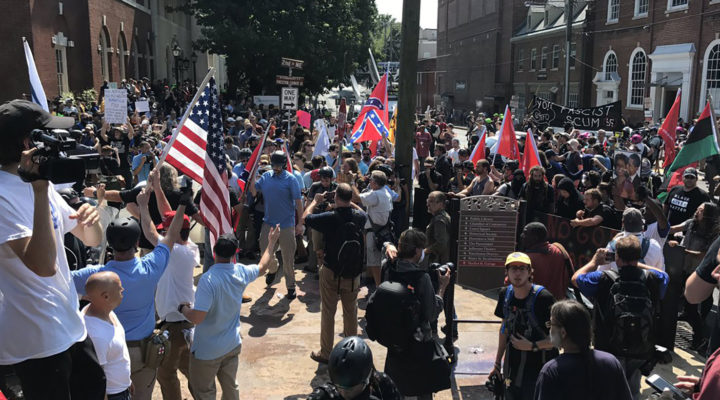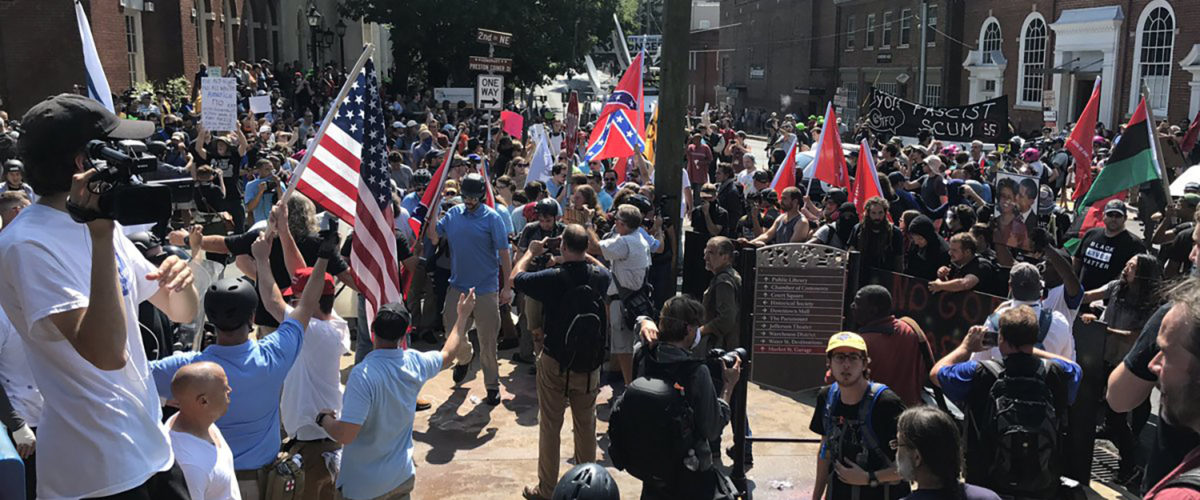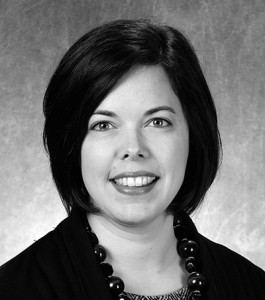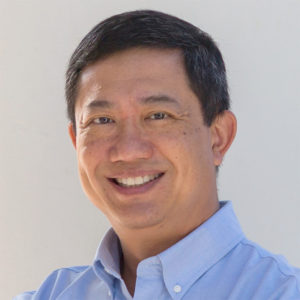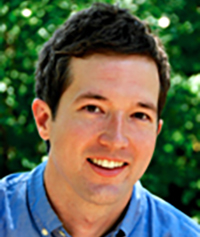The white supremacist violence in Charlottesville, Va., represented, for some of the nation’s pastors, a clear moment to preach against bigotry and hate last Sunday morning.
One counter-protester was killed and others were injured, inspiring ministers like Elizabeth Mangham Lott to ditch previously planned sermons to confront the violence that erupted in Virginia.
Lott, senior pastor at St. Charles Avenue Baptist Church in New Orleans, said she felt compelled to tackle the ugly events and the evil behind them.
“I can’t deny it,” she said. “It would be like standing up to read the phone book if I didn’t come up with a new sermon.”
Lott’s congregation is accustomed to difficult subjects. But other pastors encounter pushback — and the possibility of losing their jobs — when calling out hatred, bigotry and racism. A congregational coach in North Carolina tweeted Monday about a pastor who had been asked to resign or be fired for doing just that.
It can be a difficult call for ministers who lead congregations with political or moral compasses calibrated differently than their own.
The pressures to remain silent on difficult topics originate from more than current events like Charlottesville. They also tap into existing concerns about church decline and growth and a desire for ministers be pastoral, not prophetic, in their ministry.
‘Direct and dire consequences’
“There is such high anxiety in congregations today, just with mere survival, that it’s a challenge to preach challenging sermons,” said Michael Cheuk, a leadership and congregational coach who has been a pastor of Baptist churches in Virginia, including Charlottesville. “Congregations fear anything controversial will drive members away.”
Cheuk said he’s experienced that tension. But he also knows the call to the daring side of faith: he provides internal and external communications for the Charlottesville Clergy Collective, which helped organize the resistance against white supremacists gathering in Emancipation Park.
Whatever the nature of the opposition, it often comes in brief comments after worship. The message is clear: don’t rock the boat.
Cheuk said he knows of churches where members wear political buttons on their clothing, including Trump-Pence logos. Meanwhile, pastors want to speak out against the hatred they hear emanating from Washington and from events like Charlottesville. They often ask how to lovingly serve those conservative members while heeding the call to preach the gospel.
“I have spoken with ministers here [in Charlottesville] who say, ‘I want to preach about this, but I also know such a message … might have direct and dire consequences for me or my family,’” Cheuk said.
But that also can be the reaction when a pastor doesn’t deal with the politics of hate in a sermon. Cheuk described a pastor whose recent lectionary-based message — the same one which had been delivered three years before without negative reaction — offended some in the pews this time.
“They said, ‘Why are you politicizing all of this,’” Cheuk said. But it was the times that had changed, not the message.
“The politics in Jesus’ message hit home,” he said.
Another common attitude is that the pastor is primarily a shepherd who should focus on pastoral care of the flock, Cheuk said. The stress of everyday life and politics spoils the peace of worship, some congregants insist.
“There is a part of me, I get that,” he said about the priestly role of the pastor. “That is a challenge and a tension that so many of our pastors are walking each and every day.”
‘The joy of difficult times’
Garrett Vickrey said he knows the tension of being a pastor during challenging times.
“There’s a burden and a privilege of speaking out in these moments,” said Vickrey, senior pastor at Woodland Baptist Church in San Antonio, Texas. “That’s the joy of difficult times.”
Vickrey said he doesn’t know anyone who got into trouble preaching about Charlottesville last Sunday. However, he has seen Facebook posts where people suggest leaving a church if the pastor didn’t speak against the protests.
Rather than toss out his prepared sermon, Vickrey said he chose to rewrite the ending to cover the subject. Preachers have a range of options like that, including prayers and letters to the congregation or adding concluding remarks.
“Tying this completely to preaching — I think that’s a judgment call.”
Lott said she’s sometimes gotten out ahead of congregations when preaching on controversial issues, such as the protests of police shooting in Ferguson, Mo. in 2014 and the Emanuel African Methodist Episcopal Church massacre in Charleston, S.C. the following year
“I was in some ways making some assumptions that people are in the same place I am,” she said.
Lott suggests that it’s a good idea to meet to define terms to ensure everyone is on the same page in using terms when discussing race and prejudice. But but those messages must be preached, she added.
“The challenge for many white people is to connect those dots and not see them as singular events. They must see that there is this bigger energy of white supremacy.”

